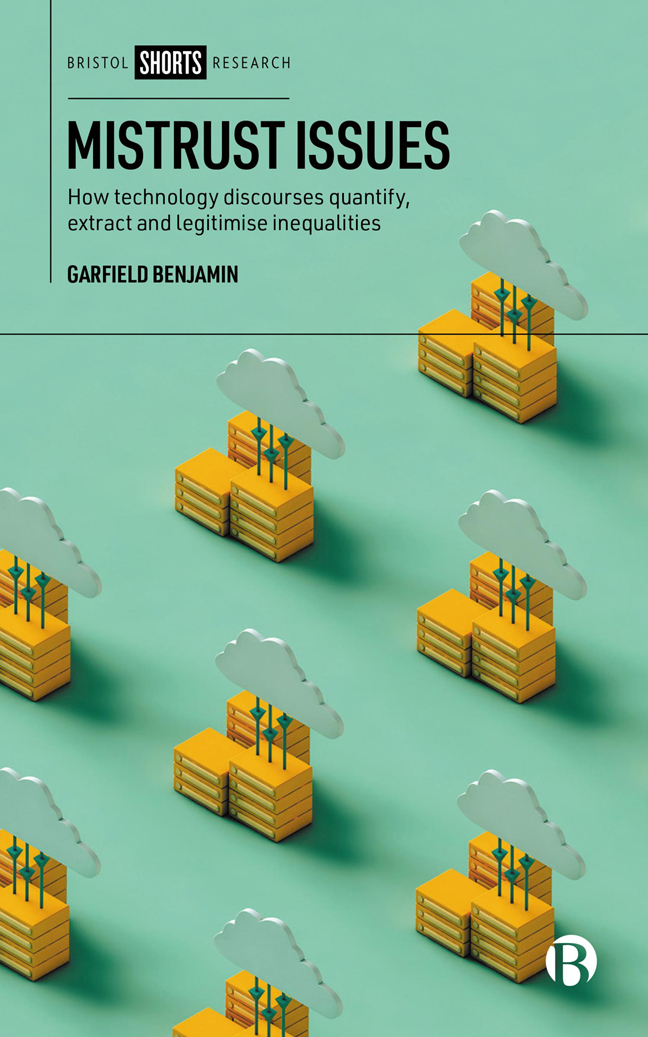Book contents
- Frontmatter
- Dedication
- Contents
- About the Author
- Acknowledgements
- One Introduction: Trust Issues
- Two Trustification: Extracting Legitimacy
- Three State: Measuring Authority
- Four Corporate: Managing Risk
- Five Research: Setting Terms
- Six Media: Telling Stories
- Seven Case Study: COVID-19 Tracing Apps
- Eight Case Study: Tech for Good
- Nine Case Study: Trusting Faces
- Ten Conclusion: False Trade-Offs
- References
- Index
Seven - Case Study: COVID-19 Tracing Apps
Published online by Cambridge University Press: 24 January 2024
- Frontmatter
- Dedication
- Contents
- About the Author
- Acknowledgements
- One Introduction: Trust Issues
- Two Trustification: Extracting Legitimacy
- Three State: Measuring Authority
- Four Corporate: Managing Risk
- Five Research: Setting Terms
- Six Media: Telling Stories
- Seven Case Study: COVID-19 Tracing Apps
- Eight Case Study: Tech for Good
- Nine Case Study: Trusting Faces
- Ten Conclusion: False Trade-Offs
- References
- Index
Summary
Trust became a key feature of the way health, governance and technology discourses intertwined during the COVID-19 pandemic. The need for public trust in the measures being put in place – and the tools being designed and deployed to support those measures – was seen as paramount. So too, then, did the measurement of trust become an important factor in defining policy and negotiating the vast array of public and private organizations involved in supporting responses to the pandemic globally and locally.
This prevailing discourse focused on trust deficits, the premise that lack of trust in both government and technology was hampering society's responses to the pandemic. Trust deficit narratives combined trustification with existing deficit narratives in the perpetuation of longstanding inequalities in the effects of the pandemic. This type of framing established trust as something required of populations, and therefore something governments needed to ‘get’, to extract and measure, something populations were required to provide and blamed if they did not. Populations around the world therefore became subject to what I have called trustification.
The pandemic context exposed ‘the complexity and fragility of trust relations at the intersection of society, technology and government’ (Bodó and Janssen, 2020, 3) and ‘growing societal distrust in the veracity of numbers and the increasing lack of confidence in the validity of the deployed tech solutions’ (Milan, 2020: 2). But the promise of certainty offered by measurement, by quantifying social problems, became ‘particularly seductive in times of global uncertainty’ (Milan, 2022: 1). A reliance on data became ‘a fundamental ingredient of any reporting on disease diffusion, betraying a positivist belief on the power of information to solve the most pressing problems of our times’ (2022: 447–8). Trust in measurement, and measuring trust, defined many aspects of COVID-19 policy, and this is nowhere more apparent than in contact tracing apps.
Os Keyes (2020) identified in the push for technological solutions to contact tracing ‘a vast array of proposals to integrate automation and technological surveillance’ (2020: 59). This discourse replaced the use of human contact tracing based on consensual data sharing and building interpersonal trust developed by social researchers gathering qualitative data on transmission. These qualitative approaches were essential in informing early responses during, for example, the HIV/AIDS pandemic (Kaurin, 2020: 68).
- Type
- Chapter
- Information
- Mistrust IssuesHow Technology Discourses Quantify, Extract and Legitimize Inequalities, pp. 108 - 118Publisher: Bristol University PressPrint publication year: 2023

